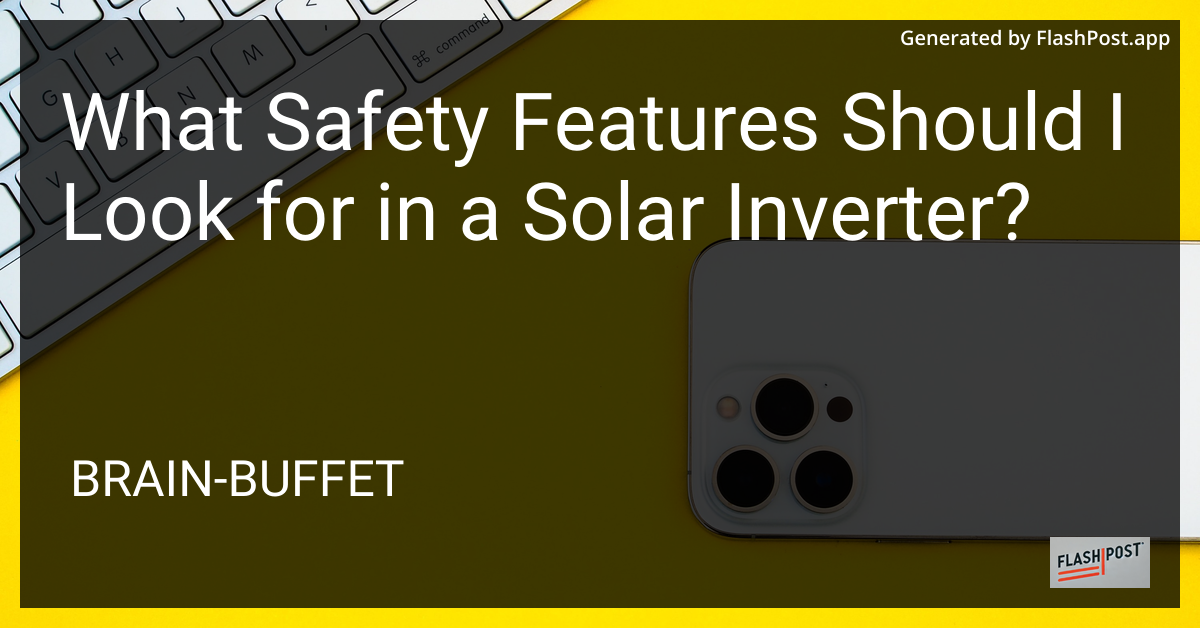What Safety Features Should I Look for in a Solar Inverter?

When investing in a solar energy system, the inverter is a critical component that converts the DC power produced by your solar panels into AC power, which can be used by your home appliances. As such, safety should be a top priority when choosing the right solar inverter for your needs. This article will explore the essential safety features to consider.
1. Overload Protection
A quality solar inverter should have overload protection to automatically shut off power if it becomes overloaded. This feature prevents damage to both the inverter and your electrical system, ensuring long-term reliability and safety.
2. Ground Fault Protection
Ground fault protection is crucial for preventing electric shock and fire hazards. Inverters equipped with this feature can detect leakage currents and disconnect the power supply to mitigate risks.
3. Anti-islanding Protection
Anti-islanding protection is essential to safeguard utility workers and maintain grid stability. It ensures that the inverter ceases to export power to the grid during outages, preventing unintentional energization of grid circuits.
4. Surge Protection
Solar inverters can be vulnerable to voltage spikes caused by lightning strikes or other electrical disturbances. Surge protection minimizes the risk of damage to your inverter by diverting excess voltage away from sensitive components.
5. Temperature Management
Effective temperature management is vital for preserving the longevity of your solar inverter. Look for inverters with built-in cooling systems, such as heat sinks or fans, to prevent overheating and maintain optimal performance.
6. DC Isolation
DC isolation ensures that the DC circuit is isolated from other components, reducing the risk of electric shock and improving safety during maintenance or emergencies.
7. IP Rating
The Ingress Protection (IP) rating of an inverter indicates its resistance to dust and moisture. For outdoor installations, choose an inverter with a high IP rating to withstand environmental conditions and ensure safe operation.
8. Arc Fault Detection
Arc faults can occur due to wiring issues and pose a significant fire hazard. An inverter with arc fault detection can identify these faults early and shut down the system to prevent potential risks.
9. Compliance with Standards
Ensure that the inverter complies with all relevant safety standards and regulations, such as UL 1741 and IEEE 1547 in the United States. Compliance guarantees that the inverter has been tested and certified for safety and performance.
To explore more about solar energy solutions and services, you can visit the best solar companies in SC.
Conclusion
Selecting a solar inverter with robust safety features is imperative for ensuring the longevity and safety of your solar power system. From overload protection to arc fault detection, these safety measures protect not only your investment but also your peace of mind. For further information on related solar topics, check out articles about solar flashlight battery life and solar panels for EV charging in 2025. By prioritizing safety, you can enjoy sustainable energy for years to come.